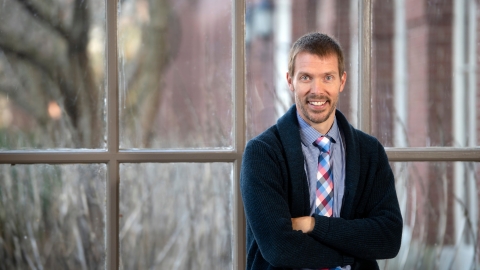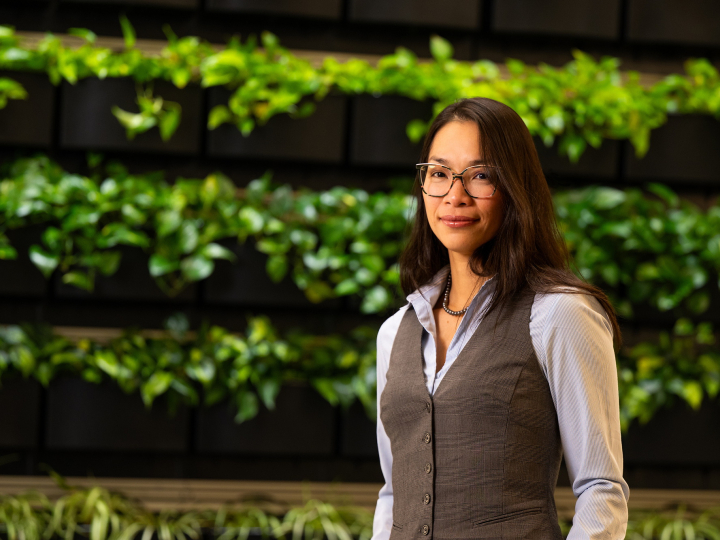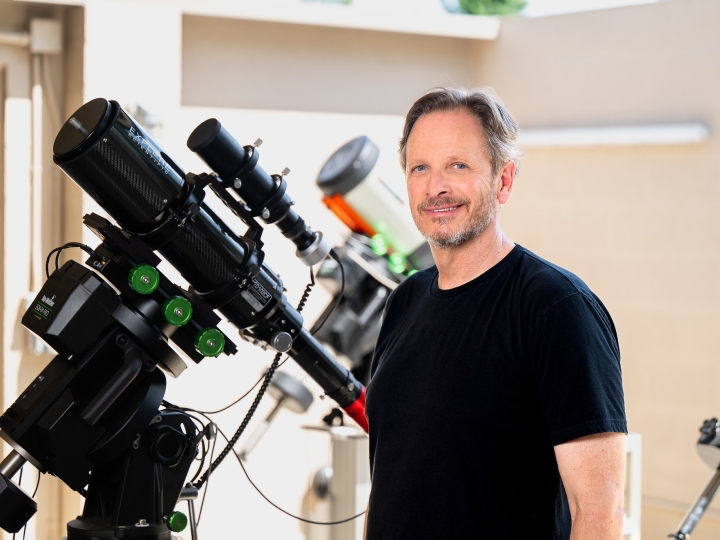
Brantley Gasaway, Religious Studies
June 21, 2020
My job is to cultivate students' ability to think critically and empathetically about the arguments they disagree with. It's not just about reaffirming what you already believe, but being open to inquiry and persuasion. That's the essence of critical thinking.
Professor Brantley Gasaway's fascination with religious diversity traces back to his experience attending college outside the conservative Christian community where he grew up. It was during his early years as a university student that Gasaway first learned about politically progressive evangelicals — a group that would shape his interests as a religious studies scholar and professor at Bucknell.
"One of the things I've tried to do in my work is to get a better understanding of the complicated, contested nature of evangelical Christians' political engagement," he says. "While the majority have supported conservative politicians and conservative initiatives, that's not always the case."
Since the 2016 presidential election, Gasaway's research has centered on contemporary progressive evangelicals and their disagreements with white Christians who support Donald Trump. His recent work on the subject analyzes progressive evangelicals' efforts to divorce Christianity from conservative politics in the years following Trump's election — particularly when it comes to hot-button issues such as racial justice and immigration.
Examining the nuanced ways people of faith engage with political issues is central to the courses Gasaway teaches at Bucknell, which focus on the intersections of American religion, politics, culture and law. Students explore the historical ties between religion and public life while engaging in constructive debates about the weight religion should carry in American democracy.
"The best thing about each of my classes is that students come in with different opinions and experiences when it comes to religion in this country," says Gasaway, who received the 2019 President's Award for Teaching Excellence, an annual faculty award presented by the provost's office. "We work to figure out how we can understand people who reach competing conclusions, and then use that understanding to inform our own ideas."
For their first assignment in his Religion in American Politics course, students write a two-page paper about the role they believe religion should play in American politics. At the end of the semester, they reflect on how their opinions have changed or become more informed in a longer paper on the same topic. While Gasaway enjoys seeing students reevaluate their positions, he says the ultimate goal is for them to become better critical thinkers and improve their ability to articulate why they believe what they do.
"It's important for students to be able to examine the beliefs they've been taught by their home communities and families. Not because they should change them, but because they are entering a process of encountering differences and deciding for themselves what they deeply believe," Gasaway says.
"We have a unique opportunity to teach students how to understand and respect those differences, and to do it well," he adds. "I believe that university classrooms are a place where people can have productive civic discourse about things that really matter."

